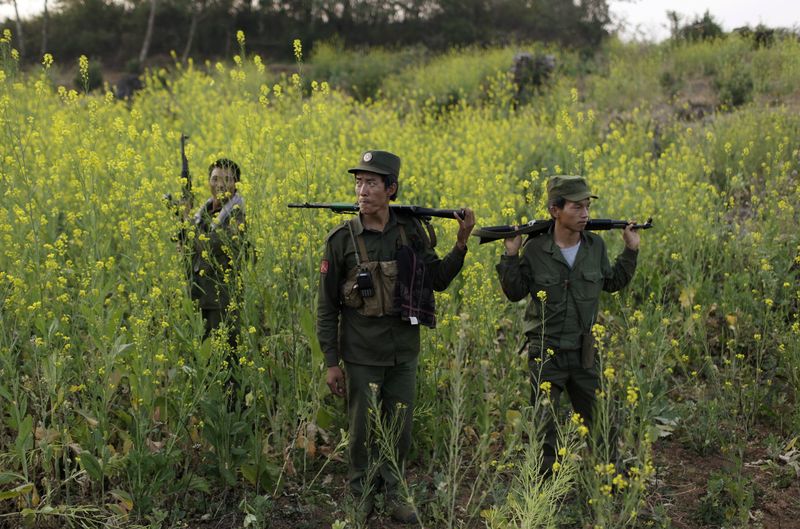YANGON/BEIJING (Reuters) - - Myanmar expressed "deep sorrow" on Monday for the deaths of five people across the border in China's Yunnan province that it has been blamed for, while Beijing said it was clear Myanmar's air force was responsible.
China has said a bomb fell from a Myanmar aircraft on a sugarcane field in Yunnan on Friday, killing four people and wounding nine. One of the injured later died.
On Saturday, a senior officer said China's military would take "decisive" measures if there was a repeat attack by Myanmar forces on its territory. Beijing also summoned the Myanmar ambassador to register a protest.
Myanmar has said the bomb may have been lobbed by rebels it is fighting in the Kokang region bordering China.
"We would like to express our deep sorrow for (the) death and injuries of Chinese nationals living in border areas as a consequence," the government said in a statement published in the state-backed Global New Light of Myanmar newspaper.
It added that the two countries' foreign and defence ministries were in direct contact over an investigation into the incident.
"(A) thorough investigation will also be made whether the Kokang insurgent group is involved in this incident to have a negative impact on the friendship between Myanmar and China and to create instability along the border area."
However, China's foreign ministry maintained it was clear the deaths were caused by a Myanmar air force plane.
"The facts are clear that a bomb from a Myanmar military plane caused the death of Chinese people," ministry spokesman Hong Lei told a daily news briefing.
"We once again urge the relevant parties in the Myanmar conflict to treat China's concerns seriously, maintain restraint, quickly pacify the situation and recover peace and stability in northern Myanmar."
The deaths have caused considerable anger in China, with some people taking to social media sites to urge a tough response.
However, the Global Times, an influential tabloid published by the official People's Daily, said in an editorial that the best way for China to ensure stability along its border was to actively push for peace in northern Myanmar.
"If (we) can help Myanmar to effect ethnic reconciliation and lasting peace, that will have the most thorough positive effect. In reality, this ought to be the long-term direction of China's developing diplomatic power."
The rebels are from a group called the Myanmar National Democratic Alliance Army (MNDAA), which is led by ethnic Chinese commander Peng Jiasheng.
The group struck a truce with the government which lasted until 2009, when government troops took over their region in a conflict that pushed tens of thousands of refugees into Yunnan.
China and Myanmar share a 2,000 km (1,250 mile) border, much of it remote and hard to access.

(This story corrects the translation of a quote in paragraph 10 to "northern Myanmar")